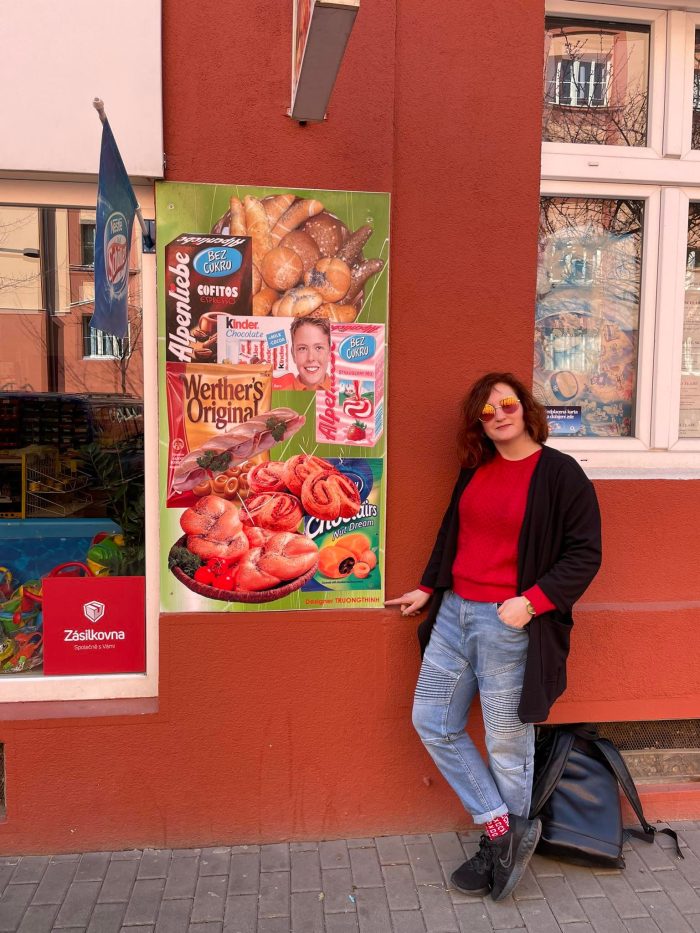A fresh(wo)man at a postgradute programme at the Institute for Art history at the Faculty of Arts of the Charles University in Prague, Tereza only recently finalised her Masters´ in September of 2022, with a thesis concentrated on allegoric Augsburg prints from 18th century. In her PhD she builds on this topic, to more widely research not only on allegory, but on rhetorical figures passed on from antiquity, and their possible presence in the semantics of university thesis´ plates. She loves Monteverdi, Palestrina, Vivaldi and Jan Jakub Ryba.
The information given, one might ask “what does such a student have to do with decolonisation? This sounds more like a profile of a coloniser”. T. likes to embraces her topics as an inquiry into the not-so-reflected thought patterns of the tradition that we often sentimentally uncritically embrace. Having slowly realised her passion for theory and methodology, she is proceeding with caution to learn the craft.
She was an Erasmus twice, once in Rome, second time Paris. This experience, I believe, completely dismantled any kind of pride in european culture and made any hegelian notions of its development irrelevant. Both experiences, even though they were first planned out according to her research, stroke a completely different chord and fired up interest in social problematics. Having nurtured an ongoing interest for contemporary art, during her masters she became a lecturer in DOX Centre for contemporary art in Prague, where she hosts programmes not only on art, but also civics. The postcolonial debate was the one that semt to her the most pressing to develop in Prague, and in 2021 with students of the Art history Jakub Kukan and Petra Bidlasová (whose lectures I cordially reccomend) put up a small conference called “Výzvy dekolonizace a dějiny umění“, where she analysed the approach of contemporary museums that are setting the trend for the notion of an ethnographic/world museum.
In Prague, when You, as an art history student, discover in yourself an interest for methodology and contemporaneity, you are being usually lead to give up research in anything older and do Your masters in one of the art academies. I believe that if we want to fire up decolonial debate and make it to application of its principles, the big university is truly the one to host it. It fosters true specialists on ethnology, indigenous cultures, foreign languages etc. who deserve to be heard (just like Anička Řičář Libánská). Inter/transdisciplinarity, even though becoming almost a cliché, often really happens as a one-time affair in conferences. Building an international network of young students and researchers interested in decolonisation is an effort to do this for real, from below.

Mediating outside DOX, in the streets of Holešovice, Prague
